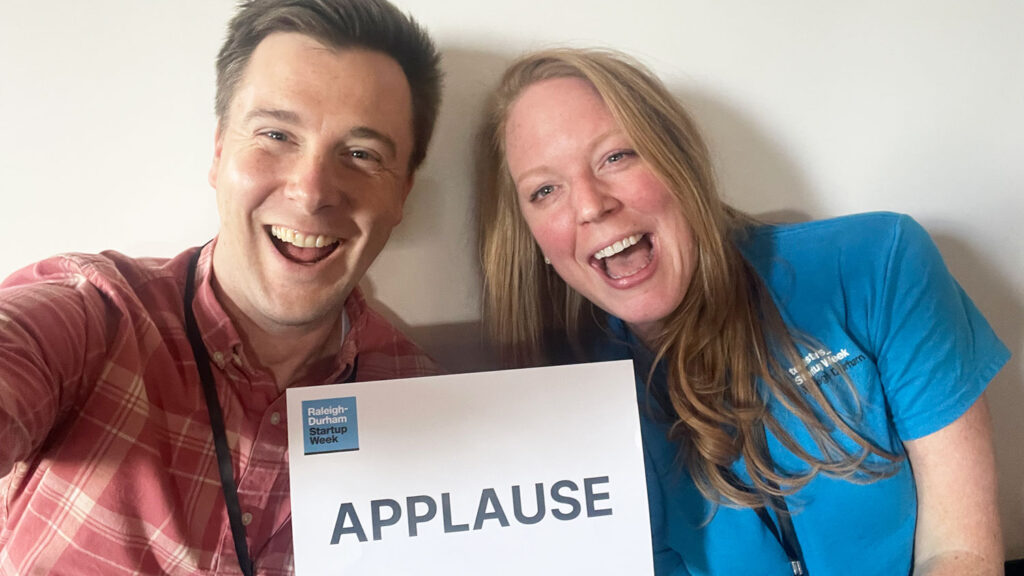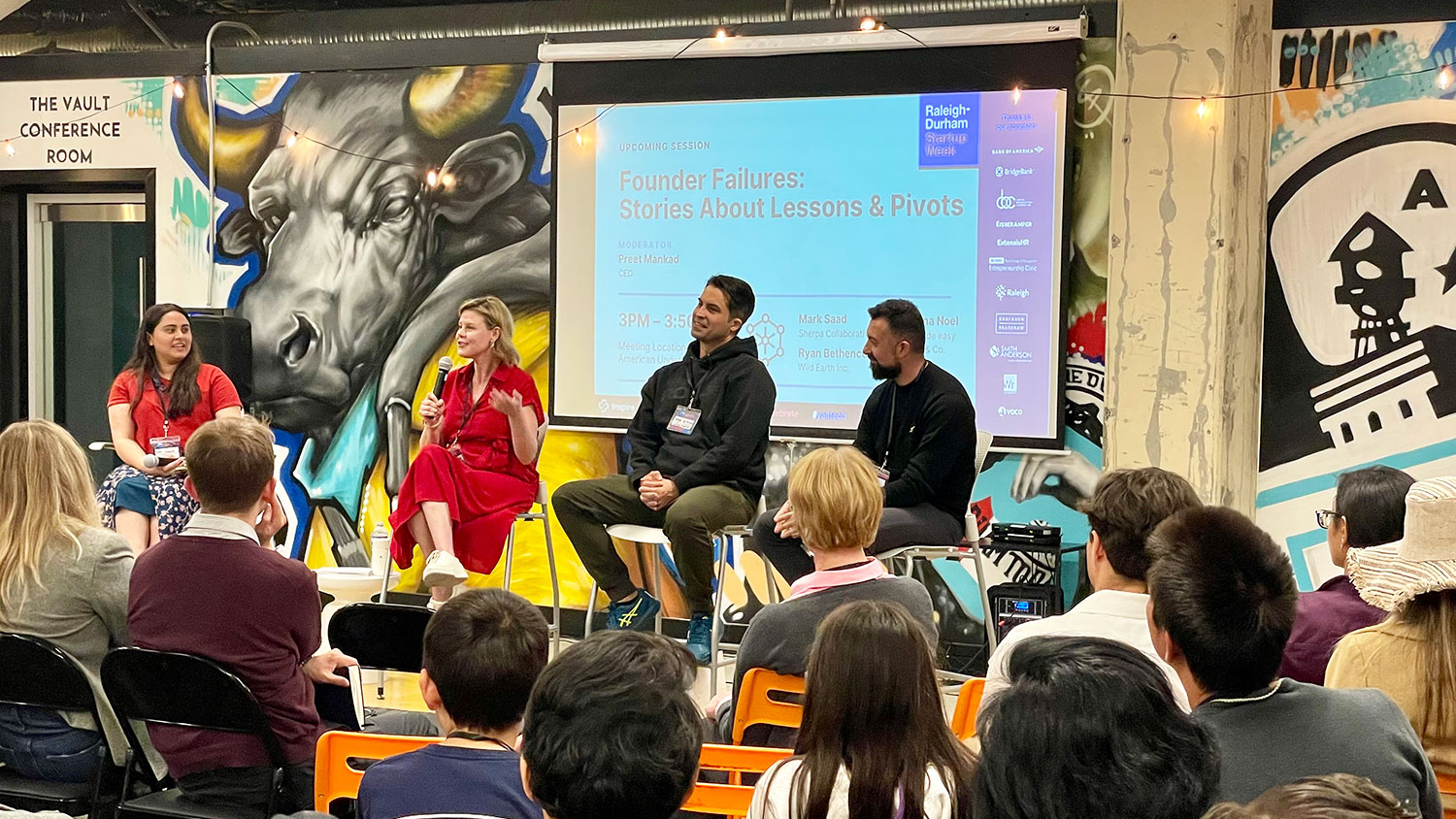Only a successful entrepreneur would talk publicly about a business mistake. What was Poole College graduate Mark Saad’s first memorable stumble?
Trying to market 65,000 pairs of children’s flip-flops his company produced, with no backstrap to keep them on young feet. In the first year, only about 10% of them sold. Saad told that story recently as a panelist at the annual Raleigh-Durham Startup Week.
“Often when you see a successful business founder, you think they hit a home run every time. That’s not the case — ever. Every entrepreneur has setbacks,” says Saad of the experience with his second business out of college. “I don’t mind talking about failure. It’s part of the journey.”
Startup Week featured discussions on every part of the journey. NC State’s Entrepreneurship Clinic, based in Poole College, was a sponsor and co-planner of the event, with a record attendance of established and aspiring entrepreneurs, investors and others in business.
“It showcases all the amazing startups and entrepreneurship activity across our region,” clinic director Haley Huie says. “People find a strong community.”
Startup Week offered more than 50 workshops, keynote talks and special events, focused on three tracks: the early-idea stage, the build mode and the high-growth scaling level. “What people really get out of it are all the practical advice that’s shared and the network effects. You can’t help but make great connections,” Huie says.
With many in-person opportunities to explore potential partnerships and mentoring, “There’s nothing like meeting someone in the real world who genuinely cares about what you’re working on,” she says.

Participation at Startup Week shows that many people do care.
Attendance has tripled — to 1,600 participants from around the U.S. — since its inception several years ago. As the only such initiative in the Triangle area, Startup Week has expanded to four days.
The Entrepreneurship Clinic, which works with students universitywide, plays a key role in Startup Week.
“It’s important to me to focus on community partnerships,” Huie says. “NC State should have a seat at the table and be recognized for what it is, which is a driving force for entrepreneurship in our area.”
Many entrepreneurs and potential founders who attend the event are Poole and other NC State alumni and students.
Students in Huie’s Entrepreneurship Clinic class expand their professional network by talking with Wolfpack alumni and with representatives of startup icons, including, this year, Airbnb and DoorDash.
Students get founder-level access, so they’re learning by doing and immersing themselves in the startup culture.
“Students get founder-level access, so they’re learning by doing and immersing themselves in the startup culture,”Huie says. “I got a lot of papers from students on the back end, talking about how it would impact their career thought process and how it was a unique opportunity.”
Saad, a 2008 Poole graduate, took advantage of unique opportunities as a finance and entrepreneurship student, including a $150,000 check from an NC State entrepreneur-in-residence to start his first business.
That startup was acquired by footwear company Feelgoodz, at which Saad was CEO during the flip-flop miscalculation.
“It was a great lesson for us about really understanding and talking to your target market before putting out 65,000 units,” he says. “Luckily we had some successes that outweighed the failures.”
As Saad noted on the Startup Week panel, he eventually led Feelgoodz to a 500% growth rate. He left to co-found Sherpa Collaborative, a Raleigh-based business consulting and investment company. “The best businesses are where you’re part of the target market and understand the needs of customers,” he says.
The underlying reason for Startup Week’s success is that Huie and others who plan and sponsor the event understand the needs of the attendees.
“We’re creating a ton of access to investors and a network to power mentorships for startups,” Huie says. “From really eager investors to people who just have an idea they want to build, what matters is that everyone is equally invested in growing the ecosystem.”
This post was originally published in Poole College of Management News.
- Categories:



